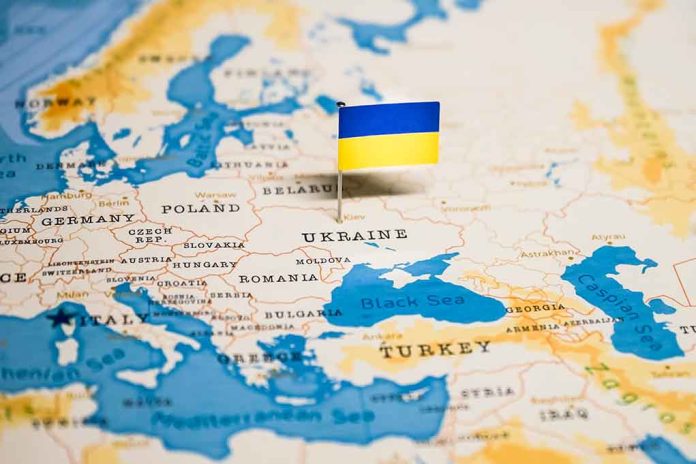
Germany solidifies its support to Ukraine with a significant military aid boost, amidst rising diplomatic challenges with Russia.
At a Glance
- Germany pledges $680 million in military aid to Ukraine.
- Chancellor Olaf Scholz visited Kyiv for the first time in two years.
- Scholz’s controversial phone call with Putin faces criticism.
- Ukraine battles a challenging winter with ongoing Russian attacks.
Germany’s Commitment to Ukraine
Chancellor Olaf Scholz of Germany made a strategic decision to visit Kyiv, where he announced Germany’s commitment to send an additional $680 million in military aid to Ukraine. Scholz’s visit, his first in over two years, echoed Germany’s consistent support amid uncertainties in western military assistance. This move showcases Germany’s dedication to bolstering Ukraine’s defense, as a prominent voice in European security and diplomacy.
The military aid package includes essential equipment like air defense systems and armored vehicles, reinforcing Ukraine’s defense capabilities. Since the onset of the conflict in 2022, Germany has established itself as Ukraine’s most significant European ally, providing over $15 billion in aid. German Foreign Minister Annalena Baerbock also underscored Germany’s firm stance against China’s support for Russia.
Balancing International Relations
Scholz’s visit, however, followed a controversial phone conversation with Russian President Vladimir Putin. This rare interaction since late 2022 sparked concerns among Ukrainian officials, who warned that such engagement might undermine diplomatic efforts to isolate Moscow. President Volodymyr Zelensky cautioned against such interactions, fearing it could open “a Pandora’s box.”
Scholz aims to strike a balance between demonstrating strong support for Ukraine while avoiding actions that might escalate tensions. This caution notably involves abstaining from sending long-range missiles. Scholz’s commitment addresses both international challenges and domestic political critiques, aiming to appease conservative rivals pushing for more aggressive support, and factions advocating negotiations with Moscow.
Responses and Future Expectations
Scholz’s reaffirmation of Germany’s unwavering support, “Germany will remain Ukraine’s strongest supporter in Europe,” was met with mixed reactions. The Kremlin did not anticipate any significant changes from this visit. Meanwhile, Zelensky expressed gratitude for the timely arrival of military equipment, which addressed previous concerns about delays in Western aid.
Amidst these developments, expectations loom over potential policy shifts in Washington with the future Trump administration. Some speculate that Trump’s campaign promises could pressure Ukraine into unfavorable negotiations with Russia, although others hope for increased U.S. military support to bolster Ukraine’s negotiating power. In response, European leaders have reinforced their commitment to Ukraine, regardless of potential changes in U.S. policies.
Germany provided a new military aid package for Ukraine. We are grateful to our German friends for their unwavering support in our fight against russian invaders.
🇺🇦🤝🇩🇪The package includes:
◾️1 IRIS-T SLS air defense system
◾️14,000 rounds 155mm ammunition
◾️10 unmanned… pic.twitter.com/r861M2VbrB— Defense of Ukraine (@DefenceU) August 19, 2024














